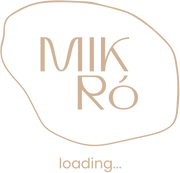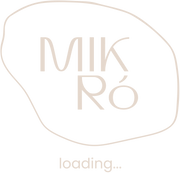Cracking the Toddler Code
One day you have this sweet little baby who you can simply pick up and walk in the direction you wish while they remain happily cradled in your warm, loving arms and the next day you have a toddler!
A toddler who can not only toddle, but also run in the exact opposite direction to you.
Toddlerhood is beautiful! Your little one can walk, talk, and engage with you through gesture and song, from blowing kisses to clapping hands, dancing, and mimicking everything they see. It is a fun and very cute phase.
Toddlerhood can also come as quite a shock as they form pretty strong ideas about what they want and huge emotions surge. Their behaviours can sometimes be baffling, and we can find ourselves wondering what on earth we are meant to do!
Let’s take a closer look at five common toddler behaviours and decode them.
1. My toddler spends most of the day saying ‘no’ and ‘mine’
Toddlers only start to realise that they are their own separate person closer to their first birthday. As they reach 18 months old, they become very aware that you are separate and even more start to realise that you and them are different. Part of differentiating themselves from you and establishing a healthy dose of independence means asserting their difference. ‘No’ and ‘Mine’ are very positive aspects of this amazing process! They are not being rude or naughty, and the best way to manage it is to validate their separateness while empathetically keeping boundaries.
This may sound like: ‘I hear you, you are saying no! You really don’t want to do that because you have your own ideas!’
2. My toddler is like a koala one minute and demanding to ‘do it myself!’ the next
Toddlers actually go through their ‘first life crisis’ during these years. It is an internally conflicting time for them. They want to be independent and yet feel torn by this process and want to cling to babyhood and remain a part of you too! These are called ‘push/pull’ behaviours and are a very normal part of their development. What they need from us is to be available to support them as they need or request it whilst also providing healthy opportunities for them to do what they can for themselves. A vital part of toddler development is seeking to feel capable and they do so when they can achieve certain tasks on their own.
3. My toddler stares me in the eye while touching the exact thing I have told them not to touch
Toddlers are really great at their job (like overachievers)! One of the ways they learn about the world and where they fit in it is by testing and seeking boundaries. They are not only learning about the rule you set in these moments but about cause and effect, for example our responses, their influence on those responses and so much more. They are not consciously deciphering ways to make us lose our minds I promise. They are asking for you to reaffirm the boundary so they can learn. Toddlers learn by repetition and often need us to tell them and show them. This means saying ‘I can’t let you scoop the sand out of the pot plant’ and then walking over and helping them stop. If they continue to, they may need you to move them into another area or move the pot plant. This is because the toddler brain is also very impulsive. They are not bad because they cant control their impulses they are simply in need of our support as that part of their brain matures.
4. I think my toddler wants to control every single little thing
It is not uncommon to feel as though you are living with a mini tyrant. They ask (ok tell) you to sit next to them, so you do, and they yell that you are not sitting the right way! They ask for the blue cup, so you give it to them, and they scream ‘not that one!’ It can feel exhausting and like we are skating on thin ice and trying to keep the peace. The thing is toddler demands are a secret message to help them get ‘unstuck’. Toddler demands are in fact ways they seek edges to feel a sense of security, they want to know that you will lead them, have their back and let them unravel in a safe place. You are that safe place, which is why they tend to test us the most and fall apart with us too.
5. My toddler is a ‘melting-pot’ of emotions
Toddler emotions can be like a roller coaster ride! Up, down, sideways, and loopy! The emotions are all a part of the toddler brain. Their prefrontal lobe which controls reason, logic and impulse control is underdeveloped. Their lower brain tends to take over regularly. It responds to stimulus by ‘flipping the lid’ and they will often need to borrow your upper brain in order to regulate back to a state of calm. These meltdowns are not meant to be extinguished but instead serve as an amazing process of building regulation pathways in their brains and feeling strongly connected to us as we coregulate with them. Tantrums and meltdowns do not mean your toddler is bad or that you aren’t doing a good job as a parent! They mean your toddler is a toddler and is growing and developing the language and brain maturity to cope well with emotions as you coach them through these years!
We hope this gives you further insight into the vital toddler years and a look into what is going on inside their little heads. Get in touch with any questions you have, we could talk about toddler all day.
About the Author:
Mandy is a child development and early parenting specialist with a Bachelor of Education, Masters in Child & Family Studies and she is currently completing my PhD in Respectful Parenting Methods. She supports toddlerhood through play resources and parent support.

TELEPHONE 0413 438 448
EMAIL mandy@raisetoddlers.com.au
INSTAGRAM @raisetoddlers
FACEBOOK @raisetoddlers
Link to our Raise Todddlers Membership designed to help you help your toddler while staying sane yourself.
https://raisetoddlers.com.au/membership/
Our Raise Toddlers Membership exists to help you help your toddler while staying sane yourself. It is a course that covers every toddler topic under the sun in short bite-sized videos (we know you are time poor in this phase) and also gives you direct access to having your current toddler scenario answered in our exclusive members Facebook group.


